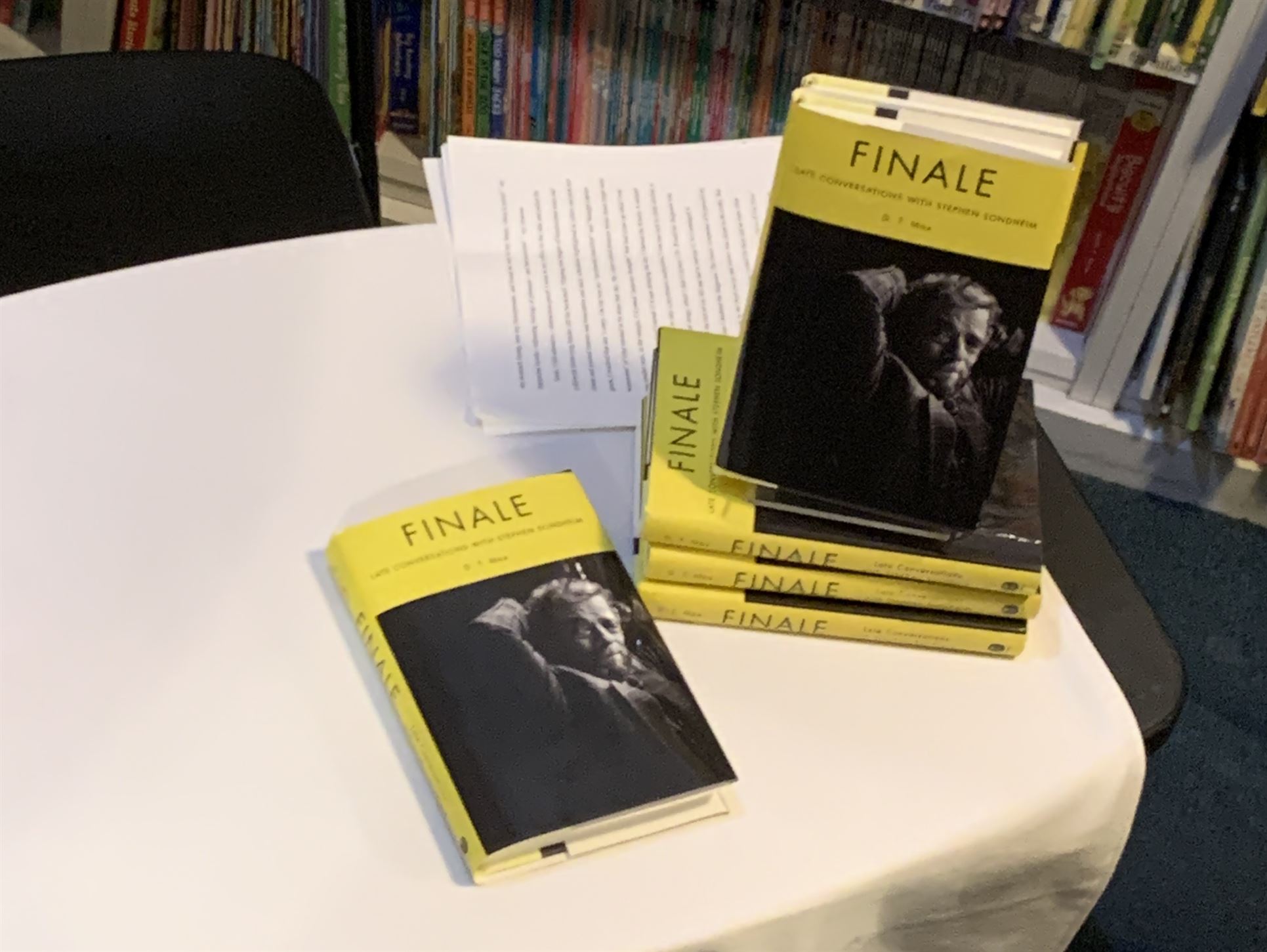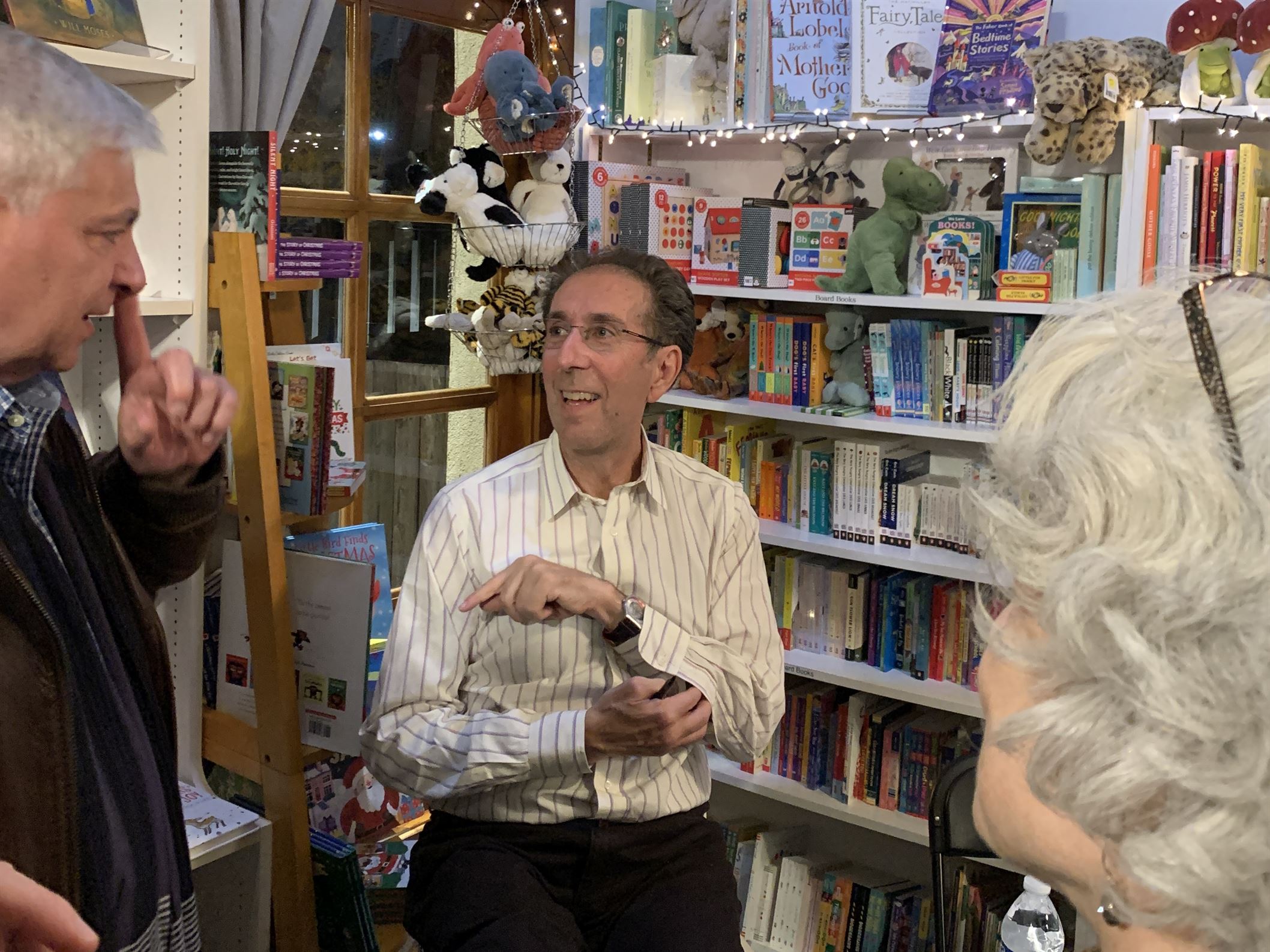It’s 7:00 p.m. on Tuesday, Nov. 29 at Watchung Booksellers in Montclair. Books titled “Finale” are scattered along the table with The New Yorker writer D.T. Max proudly sitting beside them. Refreshments such as a cheese board are set on a table with various beverages. Max sits next to Peter Flynn, an associate professor of musical theatre at Montclair State University.
Flynn interviewed Max about his latest book, “Finale: Late Conversations With Stephen Sondheim,” a profile on the famous composer and lyricist Stephen Sondheim. They spoke thoroughly during the book signing, discussing their own accounts with Sondheim. As they compared and contrasted their experiences, the viewers got to witness firsthand Max’s bond and friendship with Sondheim.
Author, father and friend, Max’s newest profile got inside the unique mind of Sondheim and provided his readers with a never-before-seen insight. Previous to his passing in November 2021, Max conducted a series of interviews involving Sondheim, talking to him about life, death and everything in between.
Sondheim was a widely renowned composer and lyricist. He is credited for re-inventing the American Musical, best known for his lyrics in “West Side Story” and “Into the Woods”. Sondheim has received eight Tony Awards, an Academy Award, eight Grammy Awards, a Pulitzer Prize and has two theaters named after him. With his larger-than-life persona, it is often forgotten that he too was human and had a personal life outside the media’s perception of him.
In the past, Max has written countless profiles including on many artists and the founder of Twitter. He stated his interest in Sondheim stemmed from his earliest memories. He brought up how his home lacked furniture, due to his parents’ conflicts, but had a walnut paneled KLH Model 20 plus stereo. On this stereo, he recalls listening to Sondheim’s tracks.
“I think I was first interested in him when I was a kid, I was listening to his album and I couldn’t believe how brilliant this guy was,” Max said.

D.T. Max became very close with Sondheim through the course of their interviews for Max's book.
Roxanne Gribbin | The Montclarion
In his profile “Finale,” he stated, “As I got ready for my interview with Sondheim, I realized that, despite decades of admiring his work, I could not recall even the most rudimentary things about him.”
Sondheim had accumulated mountains of fame over the years which made his perception in the media waver. Sources have stated that he was quiet and kept to himself often. Max wanted to challenge the idea of who he was and take matters into his own hands.
Max and Sondheim were close acquaintances that shared many similarities. Despite his image in the media, Max revealed that he was very social and enjoyed having people around. Sondheim loved the company of many people, but made sure to always put his work first. He held his music to a high standard by critiquing himself. The profile “Finale” allowed Sondheim to tackle rumors about himself and paint the picture of who he really was, during his cessation.
Max described the writing style as similar to a play. The book is formatted with a prelude and includes script-like text, with the context in between making it interesting to readers. “Finale” includes five interviews that took place over a few years.
“[The interviews] take place in chronological order, but I wrote material between the sections that helped you to understand what had gone on kind of in between,” Max said.
During this time of interviewing Sondheim, Max found similarities between the two of them.
“I relate to his cleverness, I relate to the deep feelings he has not always shown, he reminds me a lot of an uncle I have,” Max said.
Sondheim had a sense of natural competitiveness to his personality. He would jokingly compete with others and had a knack for initiating it, according to Max.
“I think he did the sparring, for me the sparring was part of naturally interacting with him, I thought he enjoyed it,” Max said.

Author D.T. Max described the writing process for his latest book on composer Stephen Sondheim, "Finale".
Roxanne Gribbin | The Montclarion
Sondheim enjoyed playfully countering opinions. He took pride in taking the other side of whatever Max was arguing for. They did not hold the same viewpoints on everything, but they were able to navigate through their differences and learn greatly from each other.
Max stayed vigilant throughout the process to capture Sondheim’s personality on paper. Throughout this process, they were able to be vulnerable and truthful together.
“I think when we were in Connecticut together and he talked about death, I thought that was a truly intimate moment,” Max said. “He thinks about death all the time.”
Sondheim held a large amount of trust in Max, and they had mutual respect for one another. Woefully, with his passing in November 2021, the book was cut short but the unique mastermind of Stephen Sondheim will live on in text forever.



